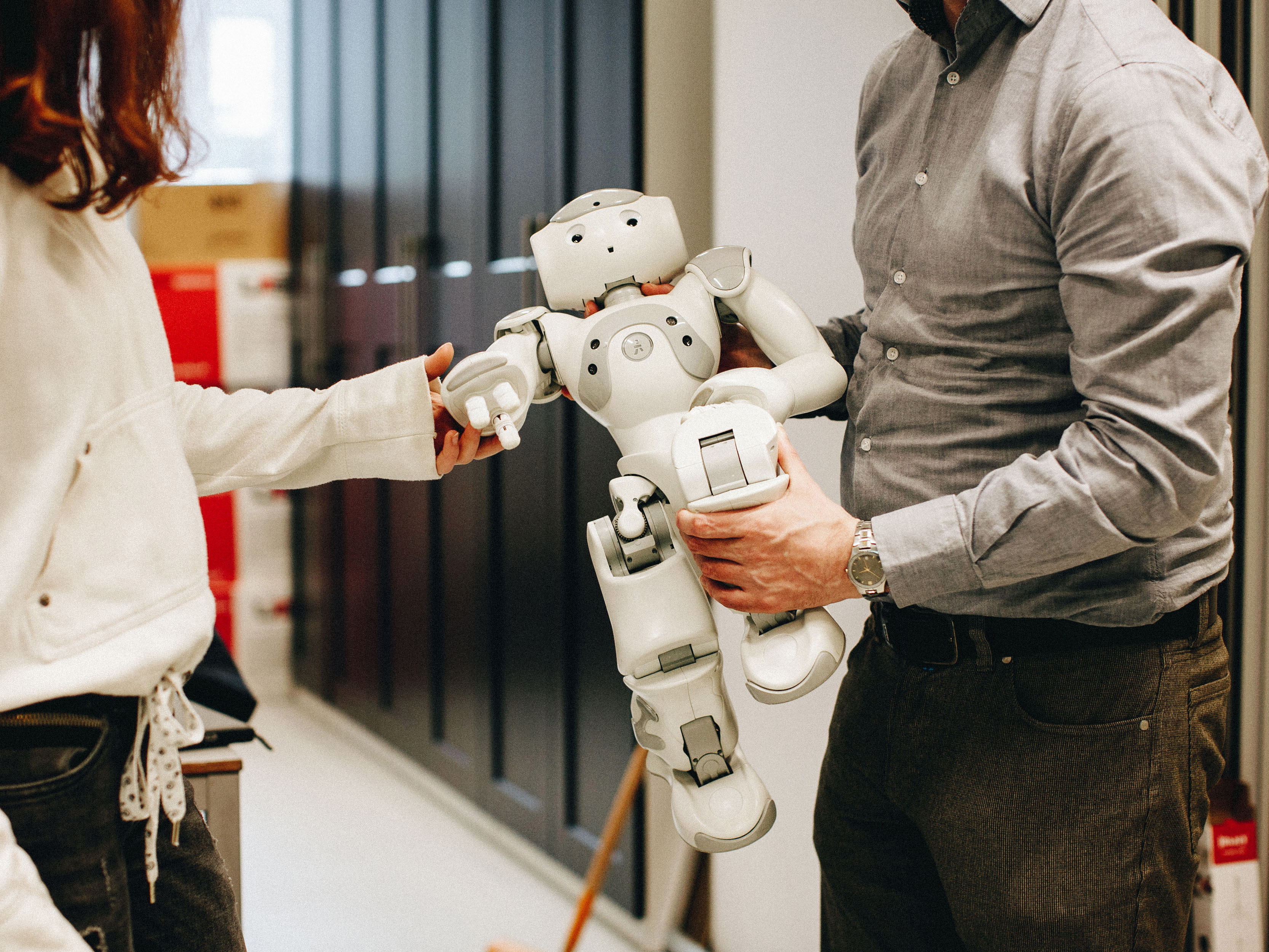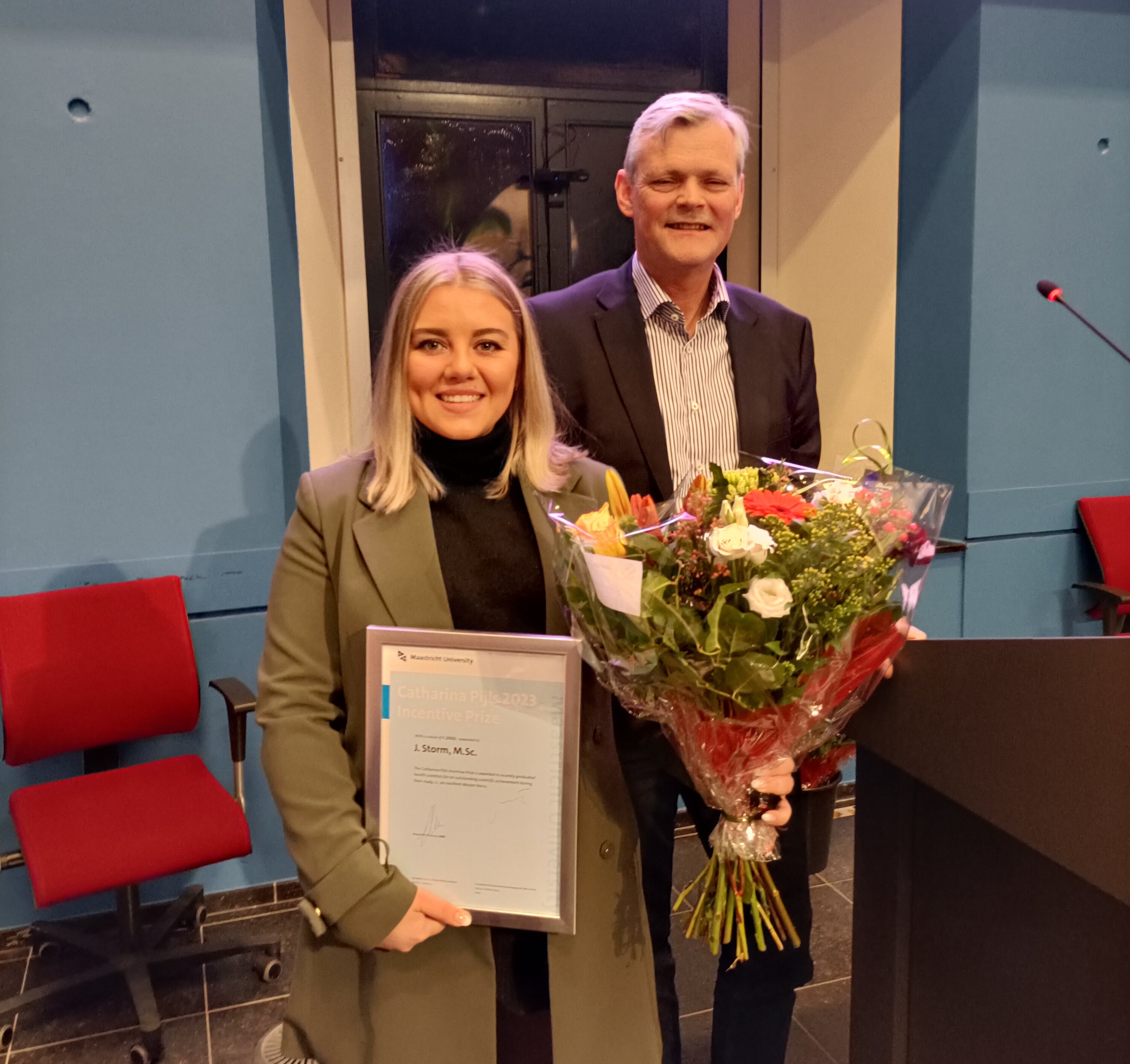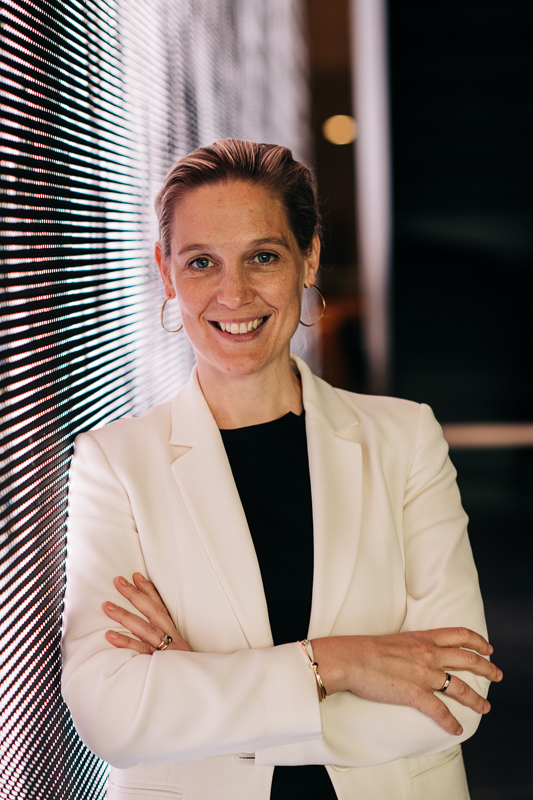UM alumni work to streamline informed consent procedure
Cut red tape in healthcare and facilitate research: this is what three UM graduates are hoping to achieve with their newly established company, Consense Data Exchange. They recently completed the two-month Brightlands Blockchain Innovation Programme, fleshing out their innovative concept involving transparent data practices. The idea won them first prize at the Hack4SmartServices Hackathon in Heerlen in May 2017.
“There were seven of us at the Hackathon, a motley bunch of students from different disciplines and cultures, including New Zealand and India”, Laura Thiel recalls. “We had no connection whatsoever and apparently little in common. But within the space of three days, we became a real team, bubbling with creative energy, and we came up with this amazing idea.”

Laura Thiel (1990) graduated from the SBE Master in International Business in November 2017 with two specialisations: Business Intelligence & Information Management and Strategy & Innovation.
Marta Giralt (1990) obtained her Master in International Business (Strategy and Innovation) at SBE in April 2017.
Oskar Person (1990) holds a BSc from the Maastricht Science Programme and is currently doing the Master in Data Science for Decision Making at the Department of Knowledge Engineering.
For more information:
contact@consensedata.com
LinkedIn
Ambitious project
“Our original goal was nothing less than the holy grail of healthcare”, says Marta Giralt. “How can you build a platform that allows for the secure exchange of medical data? The infrastructure in the Netherlands is fragmented and the information is scattered across healthcare providers. Individuals like us don’t hold the data; it’s healthcare providers like hospitals and pharmacies that have your personal information. The holy grail of data exchange is still our vision, but we’ve decided to zoom in on a specific part of this process, and automate it with the use of blockchain technology.”
That specific part is informed consent, which is key to any medical research or trial. It’s about giving individuals control over their data and raising their awareness of the aims, risks and benefits of a study so they can make an informed, voluntary and rational decision to participate. The initiative could not be more timely: in May a new regulation will come into force giving all Europeans full control over their data. Under the General Data Protection Regulation (GDPR), EU citizens will enjoy a new set of ‘digital rights’ at a time when the economic value of their personal data is rapidly increasing. For the companies and organisations that use these data, the new regulation will have major repercussions.
Sea change
The GDPR constitutes nothing less than a sea change in our rapidly digitising world, according to Oskar Person. It presents major challenges for the healthcare industry, and healthcare researchers in particular. “Their core business is all about collecting, analysing and using patient data, and from next May, they will no longer own this digital information. The regulation could inhibit research, but we see it as an enabler of free science and empowerment of both researcher and data subject.”
“The GDPR specifies how to approach consent and how to deal with people who want to withdraw their data from a study”, Giralt continues. “The regulation is strict and the penalties are quite high, but there’s no mention of the technology that needs to be used. So there’s space for innovation.”
And that’s where the prize-winning Hackathon team stepped in. They wanted to streamline the process of giving consent and develop a proper permission procedure that ensures individuals are in control of their data. “The current consent process is quite cumbersome”, says Thiel. “Much of it is still done on paper, which you need to print and sign. The consent forms are frequently sent back and forth. We focused on digitising this process and providing metrics on how the process is going. We also want to set up communication channels so individuals can request information about the study and become more involved.”
Benefits for science
Involving individuals in the research process: this is what the three had in mind when they launched their company. Improving the informed consent procedure will make more data available to researchers, enabling them to provide new insights and advance science. This will, in turn, benefit society as a whole. In short, Consense Data Exchange will simplify the bureaucracy for healthcare research so that more research can be done. “Research institutes will want to pay for this service”, says Thiel. “The service can be subscription-based or licence-based for large organisations like UM, which can integrate it into their software systems.”
Having developed their business model, the Consense team are now writing a business plan with the support of experts from the Brightlands Innovation Programme. The programme is based in Techruption, a co-creation zone on the Brightlands Smart Services Campus in Heerlen, and is supported by multinationals, financial institutions, energy companies, local and regional authorities and research institutions. In addition, Consense is trying to forge partnerships with researchers, hospitals, insurance companies and other stakeholders to get the project off the ground. The overall response has been positive. “We’re applying for funding from the EU, LIOF and other sources, which will allow us to do a proper feasibility study”, says Giralt. “We can then look at the legal, technical and business aspects. Our plan is to have a minimal viable product by the time the GDPR comes into effect.”

Also read
-
Last year, Maastricht University further strengthened its profile in science and technology by launching a Bachelor in Computer Science. The response exceeded all expectations, with the first cohort of 300 students from all over the world starting the programme in September. “Computers and...
-
The healthcare sector is facing limited resources. Without smart innovation, quality of care is at risk for all patient groups. Jessica Storm, an alumna of the master’s programme Healthcare Policy Innovation and Management, researched the cost-effectiveness of fall prevention for one of the largest...
-
Were you absolutely cruising through your exams? Were you well prepared with plenty time to spare? Then Anique de Bruin’s work won’t change your life. But for everyone else, the Professor of Self-regulation in Higher Education has useful insights and tools. Together with a refugee scholar financed...


